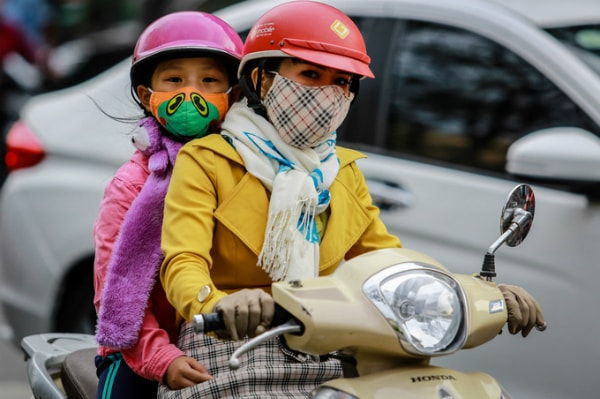Common mistakes adults make when keeping children warm
In cold weather, many parents dress their children in too many clothes, causing difficulty breathing and respiratory congestion.
Dr. Tran Anh Tuan, Head of the Respiratory Department, Children's Hospital 1, Ho Chi Minh City, saidHoa is treating about 250 children with respiratory diseases.The cold weather in Saigon has increased the number of hospitalized children.Two common groups of respiratory diseases in children arebronchitis, pneumonia and sinusitis, asthma.
According to Dr. Tuan, when it is cold, parents need to pay attention to keeping their children warm, especially newborns, children under 12 months or those with chronic diseases. If you want to bathe your child, you mustChoose the warmest time of day, close the doors, avoid drafts and bathe your baby in sections rather than immersing the whole body in water, drying the baby as you bathe.
"Children should wear warm clothes, hats, scarves, gloves and socks."However, avoid dressing children in clothes that are too thick or have too many layers, making it difficult for them to breathe," Dr. Tuan noted.
Many parents light fires and warm their children with honeycomb coal, causing respiratory problems.
 |
Keep your baby warm in cold weather. Illustration: Thanh Nguyen |
There is a trend of using essential oils to rub on acupuncture points to prevent respiratory diseases in children. According to Dr. Tuan, this method is effective but requires careful study. Children's skin is very fragile. If you apply oil directly to the skin, it can cause irritation, burns, and blisters.Some essential oils contain many dangerous ingredients. If too much oil is applied to the skin, it will cause poisoning in children.
Avoid letting children come into direct contact with sick people.If your baby has symptoms of convulsions, lethargy, vomiting, loss of appetite, or high fever for more than three days, take him to the hospital.Feeding children with adequate nutrition and vaccinating them as early as possible, especially flu and pneumococcal vaccines, can reduce the risk of pneumonia by about 50%.
According to VNE
| RELATED NEWS |
|---|

